Reading
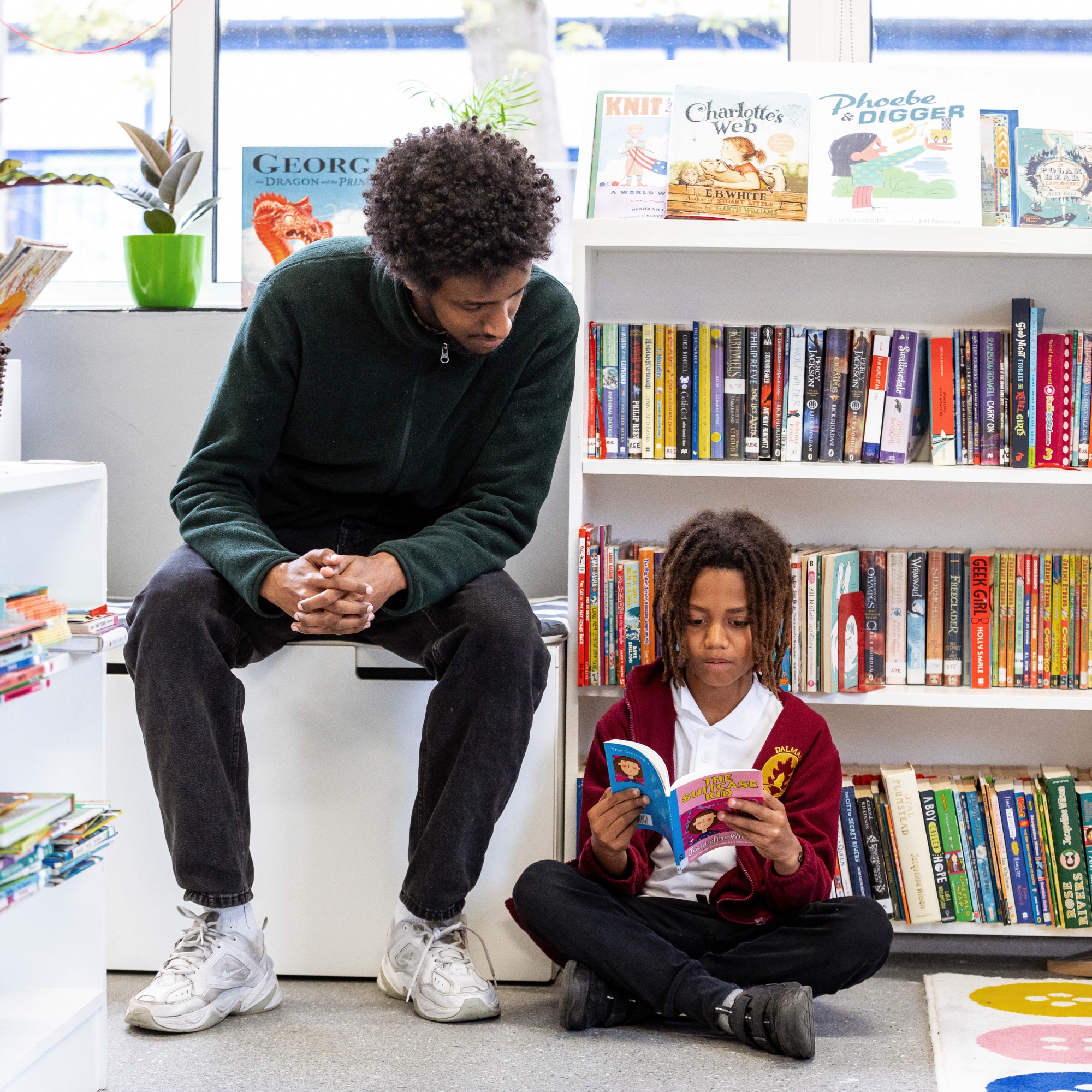 Recommended Reads - click the links below for our essential book lists!
Recommended Reads - click the links below for our essential book lists!
At Dalmain, our staff are whole-heartedly committed to the vision that by the end of Primary School every child will develop the stamina, resilience and criticality to become a life-long reader. It is our belief that every child should be able to read for pleasure and to a high standard, enabling them to access the breadth of the curriculum and share in a love of reading with their peers. Reading has the power to ignite curiosity in the minds of our young learners, and through our exploration of a wide variety of books we encourage pupils to question the world around them and ask ‘why’.
Our teaching team nurture a love of books by placing reading at the centre of the curriculum, creating inviting reading corners in the classroom and through weekly visits to our beautiful school library.
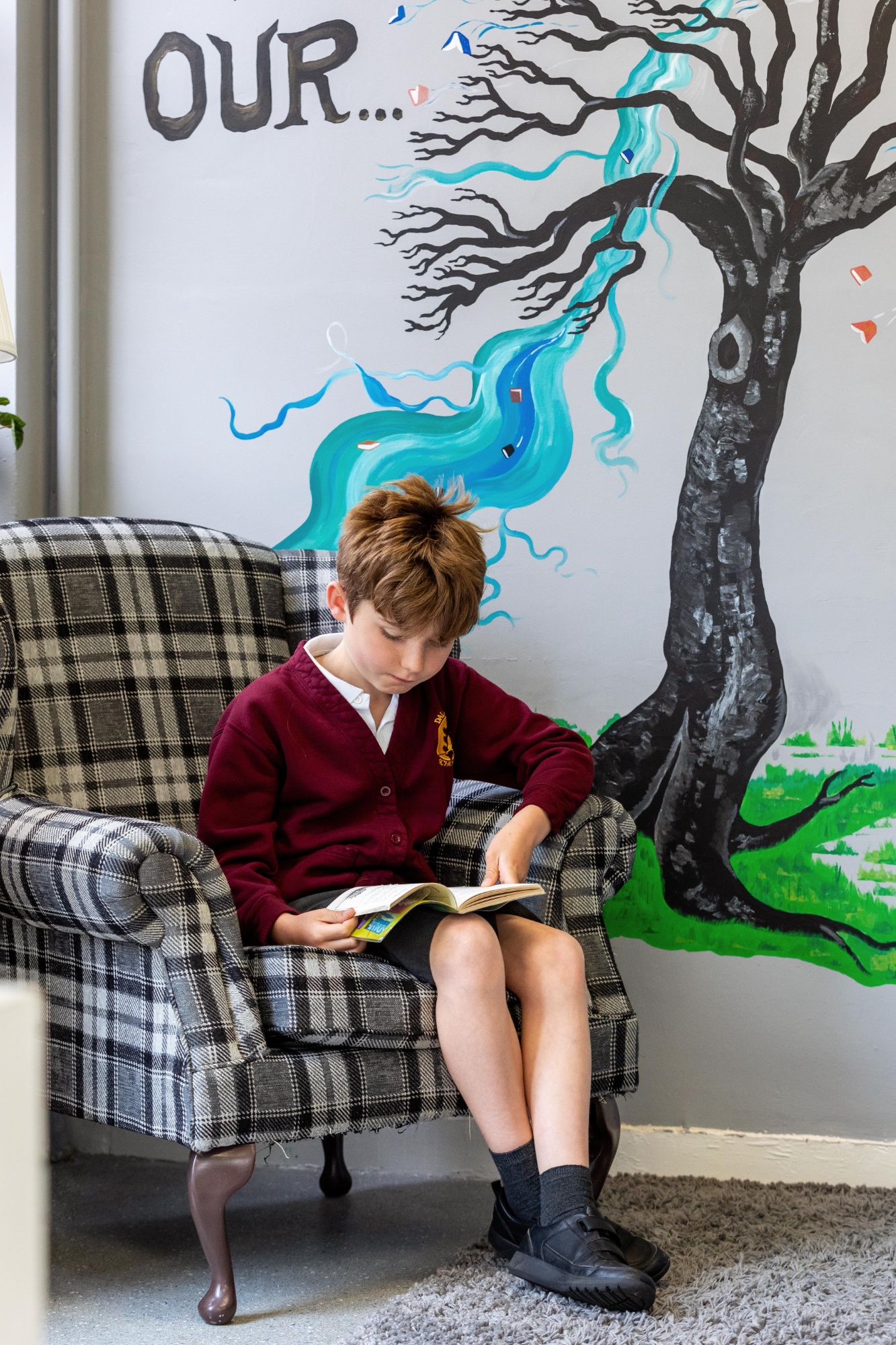
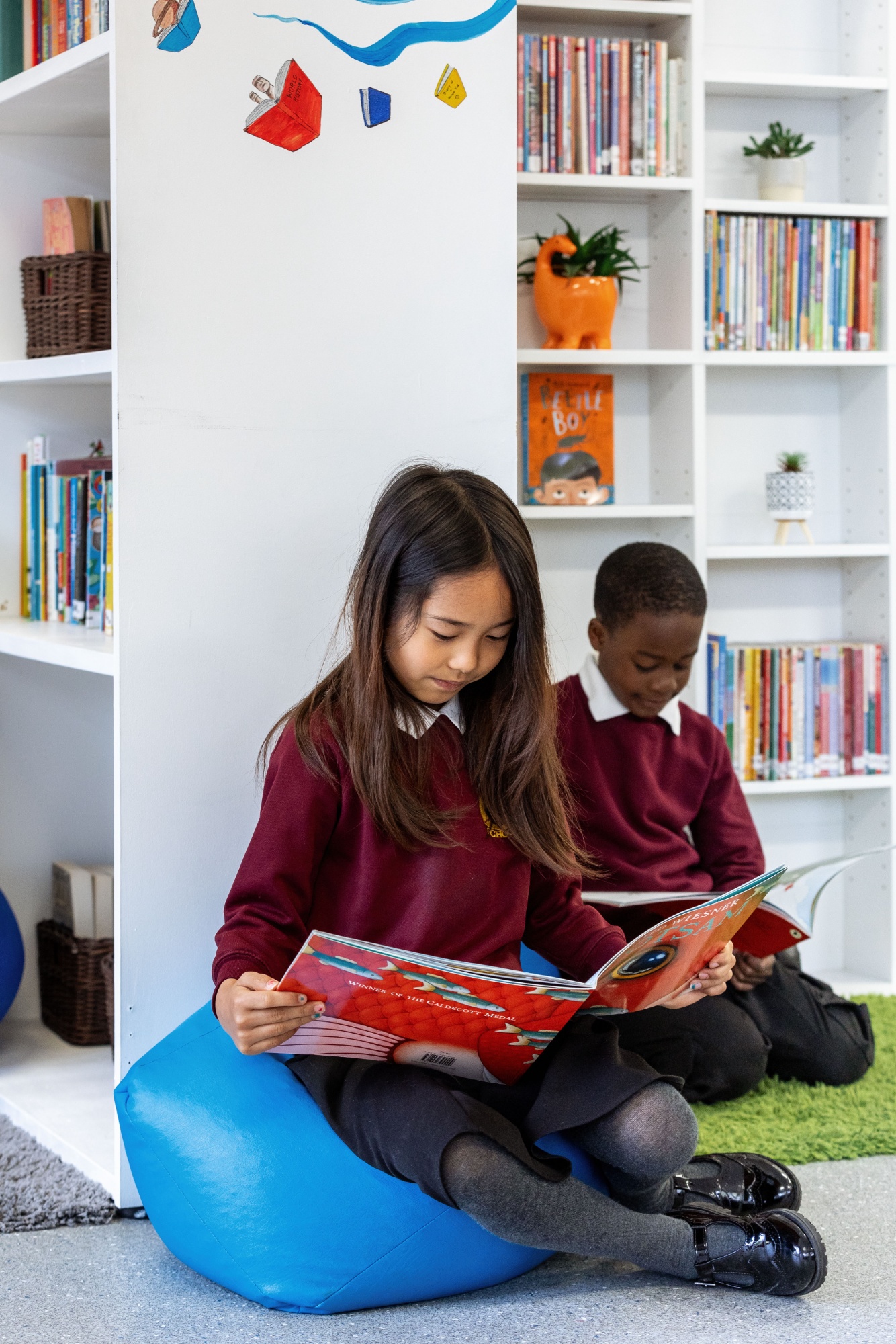
In the Early Years and KS1, daily Phonics sessions are taught to support the children’s early reading development and enable them to segment and decode words in their journey to becoming fluent and expressive readers. Alongside our Phonics programme Unlocking Letters and Sounds, we use phonic scheme books from Ransom Publishing which support the children to practise the key skills learnt in the classroom. Children also take home a high-quality text which support the teaching of essential comprehension skills and immerse readers into a world of rich vocabulary and authentic contexts from a young age.
Children in Reception and Year 1 have weekly group reading sessions with an adult in the school. They read the same book three times in a week enabling the children to focus on decoding, reading with prosody and comprehension skills.
Children in Year 2 have the same group reading sessions in the Autumn term but in the Spring term move to Teaching of Reading.
We assess progress in phonics every half-term, enabling us to identify gaps and plan catch up interventions. It also ensures that every child is reading the correct level of book both independently at home and within their group read in school. Every child in EYFS and KS1 will also read with their class teacher on a 1:1 basis every half-term and this will be recorded in their reading record.
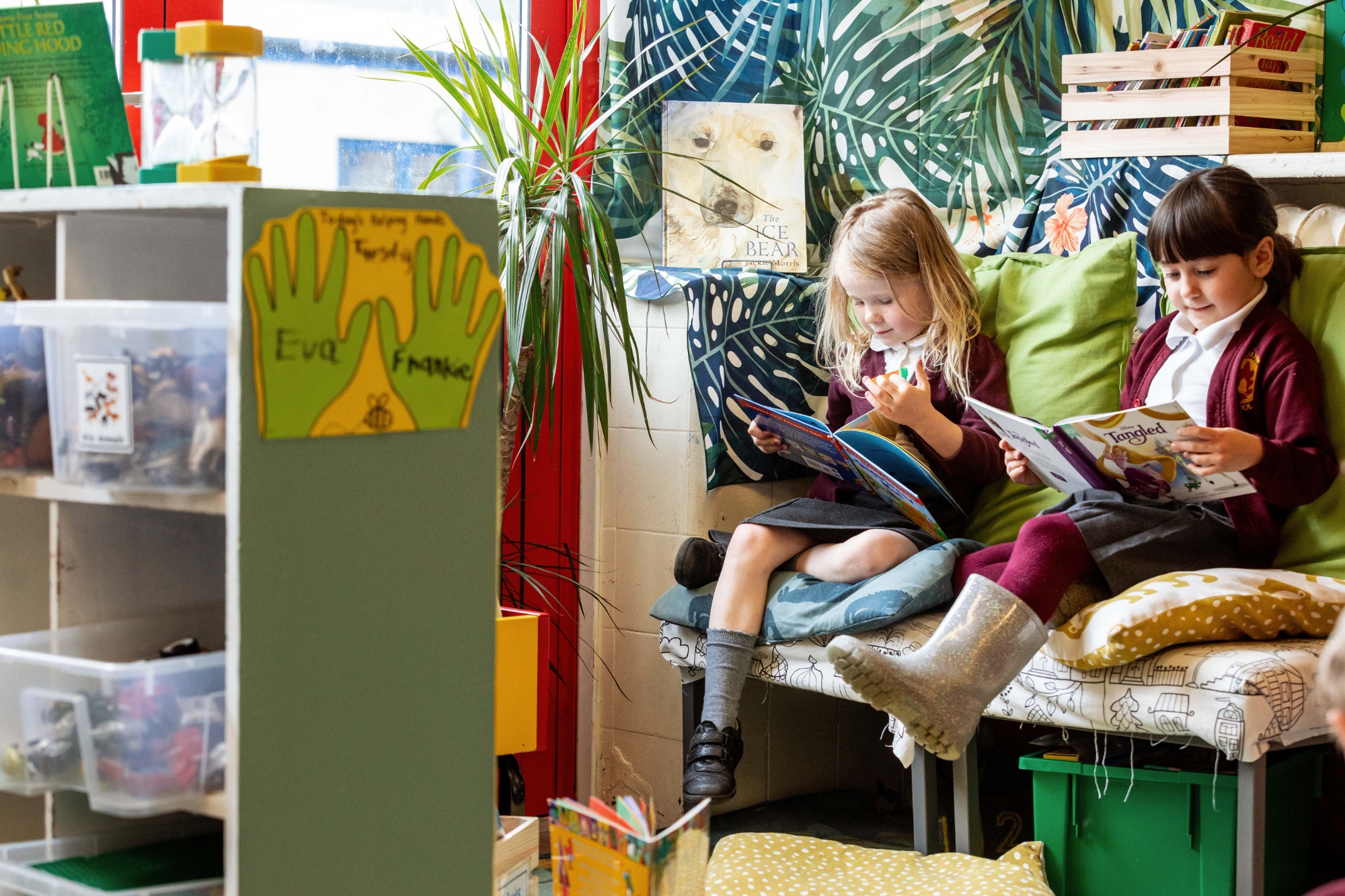
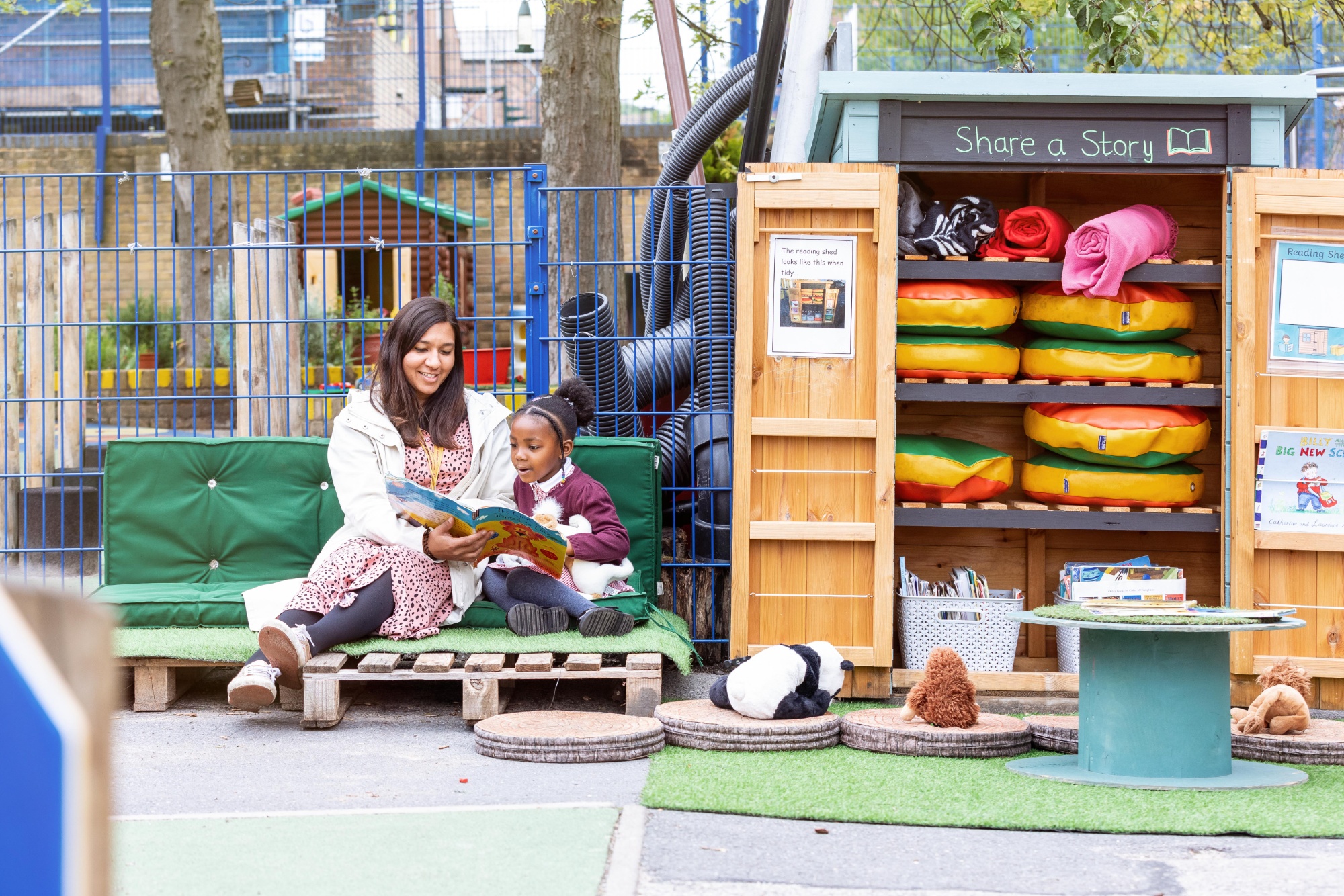
In KS2, whole class Teaching of Reading is taught at least four times a week, and a range of teaching methods are used to help children develop their reading skills in a way which meets their needs and challenges them appropriately. The types of questions children will explore enable them to apply the key comprehension skills: discussing and exploring vocabulary; summarising themes and ideas; making predictions; discussing the author’s choice of language and the effect it has on a reader; retrieving information from the text and making inferences using clues from the text. A sense of enjoyment, wonder and expectation are promoted throughout the exploration of a text, and book discussion is widely encouraged to help children empathise with characters, share and debate opinions, and foster their own sense of identity as readers.
We also acknowledge and value the important role that parents and carers play in supporting children’s reading development by listening to them read, reading to them and encouraging discussions about books. Daily reading is essential to a child’s reading progress, and even just 10 minutes of dedicated reading time a day can make a huge impact on their development. In EYFS, KS1 and Lower KS2 it is expected that children read for 10 minutes every day and parents are asked to complete their child's Reading Record daily. Children in Years 5 and 6 will receive a Reading Journal, giving them the opportunity to complete comprehension tasks at home and respond critically about books they have read.
